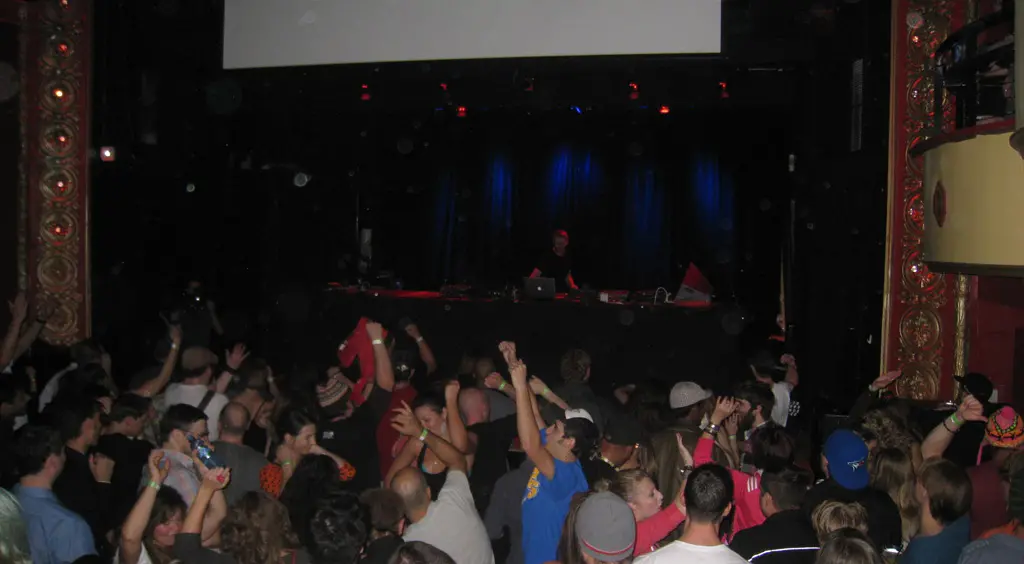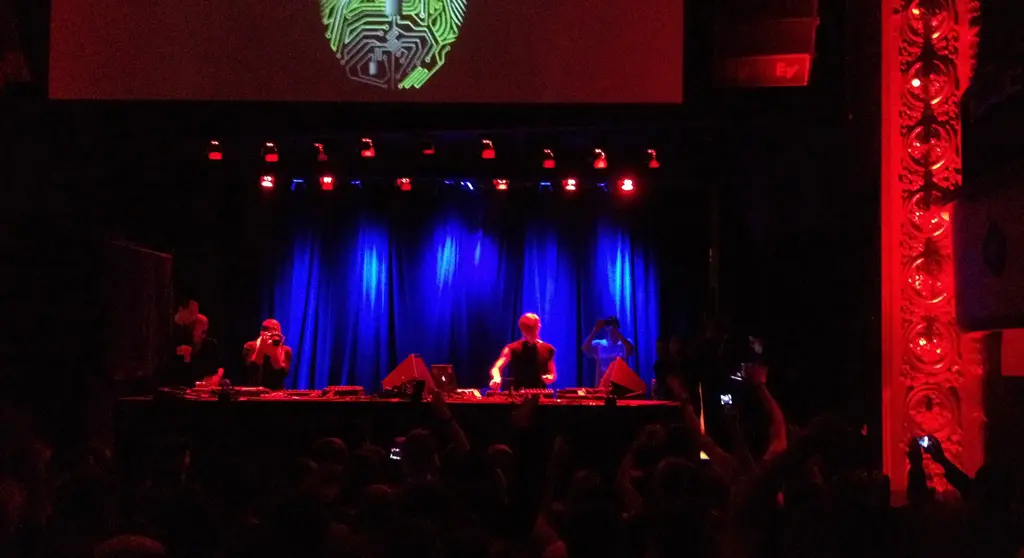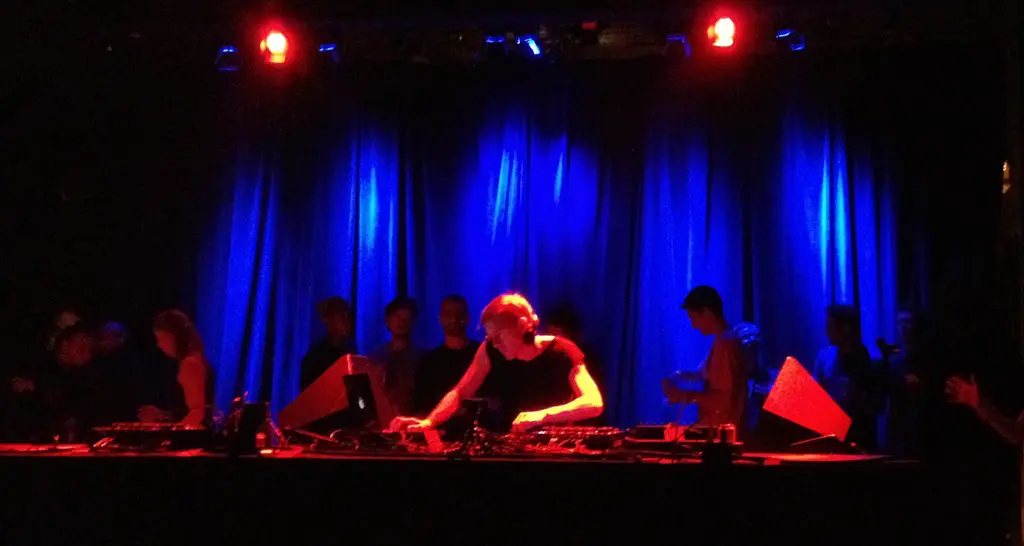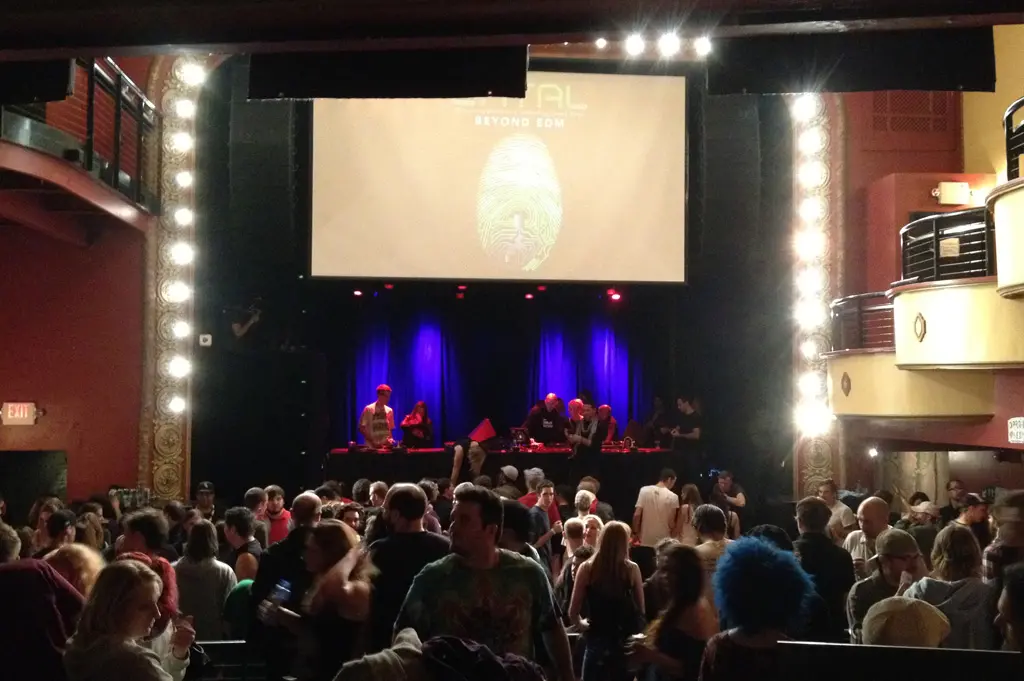A couple of weeks ago, legendary DJ Richie Hawtin came to Madison on his CNTRL Tour, which comes with the title "Beyond EDM". The Beyond EDM moniker is the driving force behind this tour, and has several meanings behind itself.
Initially my thoughts were that "Beyond EDM" meant an exposure to other genres outside of the massive popularity of Electro House, Dubstep, Pop House, some Trance, and everything you hear on the radio, in most clubs, and so forth. Many of the new kids to the scene don't realize the rich history and beautiful sounds of true House, Techno, and other more minimal genres that built the scene back in the day.
But, aside from exposure, the "Beyond EDM" meant something else, and something more. In the strictest sense, "Beyond EDM" means there's more than just the music.
"Beyond EDM" means connections. The wonderful thing about nearly all of electronic dance music is the community that supports it. For those who are fans, it's about connecting with other fans and artists, supporting them, and sharing music. For those who are artists, it's about reaching your fans, growing your fanbase, connecting with other artists, and supporting them too. Support and Collaboration.
The best (and most unique) thing about Richie Hawtin's CNTRL tour was the education and community focus. Earlier in the evening, Hawtin held a round-table style discussion and lecture at each of his tour stops, completely free. Hawtin had 3 or 4 other panelists, and they would discuss various topics such as "the business of EDM", "EDM: Now and Then", "The evolving artist", etc.
In Madison, Hawtin held his lecture at the Madison Media Institute in southeast Madison. It almost immediately sold out. Along with Richie Hawtin, Kevin Saunderson, Ean Golden, Gaise, and Kurt Eckes, from Drop Bass Network all sat in front of us all and talked about EDM for about 2 hours.
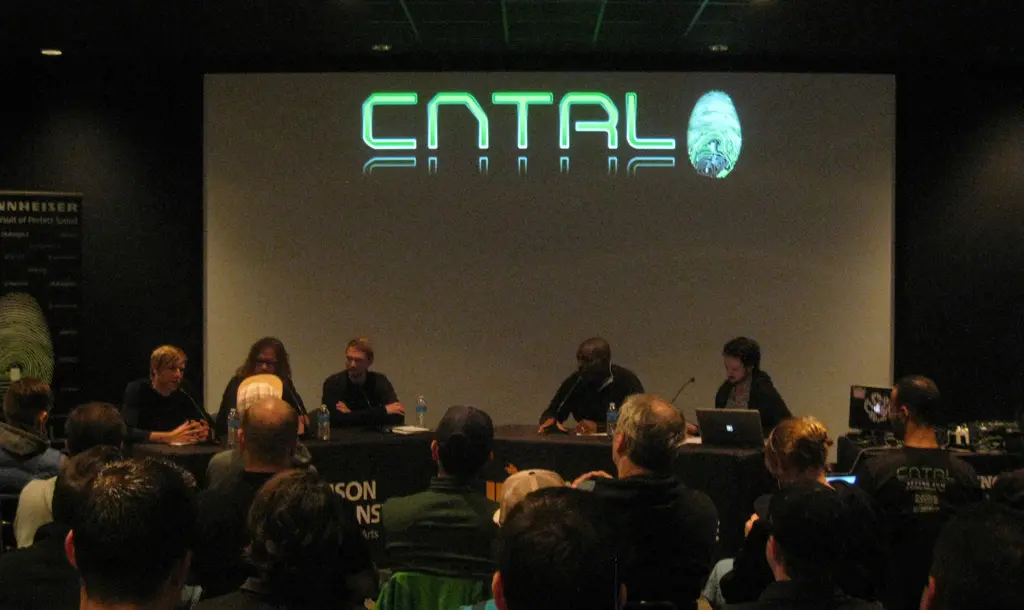
The whole format was mostly question and answer, but the questions were a little bit leading, and were really more like prompts that guided the information the panelists wanted to say.
And I wrote a bunch of notes...
The first main topic of the night was history. With the explosion of EDM today, we need to look at the past to make sure the same mistakes won't happen again. Electronic dance music was rather prevalent in the late 90s with the rave scene, but it died out. What happened?
This question was directed at Kurt Eckes. Eckes is one of the founders of the Drop Bass Network, a company responsible for some of the largest rave events across the midwest in the mid 90s to the 2000s. So, what killed his events?
Kurt had a few answers, but his main answer was the Rave Act, and the negative publicity of raves in general. The Rave Act basically slammed an event where any illegal substance was found with a massive fine. Cops would have the authority to raid any event they believed had a substance, and run through everyone there until they found something, or were satisfied enough, and left.
This was a huge bummer for several reasons. Kurt admitted that nearly all of the parties he put on were illegal. They never checked for drugs, and they pretty much didn't care. After the Rave Act was introduced, it was way too risky to continue the way they were. Hiring a bunch of security guards was a bummer. And if, on the off chance, a party attendee brought something, and the Cops raided the place, he'd be slammed by the law.
Aside from that, other companies that did throw legal parties were still getting busted. The cops would shut down the music, have everyone on the ground, and comb the place for an hour. That's not a fun night for anyone, whether or not they actually find something.
The Rave Act killed the fun, and made everything too damn risky. And Kurt's personal interest in the business was beginning to wane, and it just felt like too much damn work to go through all the red tape.
One solution to the problem was to move the scene into the clubs. But this had its own problem. The club scene is not the rave scene. Aside from banning illegal substances, clubs had strict operating hours. Most of the places in the midwest had to close at 3am. Most raves went until dawn, or even past dawn, continued through the next day, and night. Raves never stop, but clubs certainly do.
The Rave kids just weren't into the club scene, so they just didn't go. And with raves dying out, they had nowhere to go, and basically quit the music scene.
Even the artists had to adapt to the time restrictions. DJs could no longer spin a 5 or 6 hour set on their own, they only had a time slot of an hour or 2. True DJs don't play song after song after song, they play a set. Songs are chosen to build off of each other, and tell a story. 6 hours is plenty of time to tell a story and try out new things. But now that time has shrunk. You can't tell a 6 hour story in just one hour. There's not enough time to build, and have variety. And instead of having 30 minutes to build up, you only have about 3.
There's very little time to be creative and flesh out anything new, too. Hawtin mentioned that he really needs a good 4 hour set to try out new things.
To tell all that you want to tell, you need to build the intensity much faster with the shorter sets. The story is condensed, and faster.
Richie Hawtin asked the question, "Was the scene blowing up because of Skrillex, or did Skrillex blow up so fast because of how fast the scene grew?" Obviously both the scene and Skrillex benefitted from each other greatly, but which one really started it?
Deadmau5 and Skrillex have raised the bar with the amount of production put into their stage performance at their shows. But with the larger scale shows, this is so many more things that can go wrong. Everything must be choreographed, and perfect for the show to be a hit. Failure can be easy, so these DJs don't take as many risks anymore. They can't. They have to stick to a schedule, and can't be as flexible.
In fast, Deadmau5, who never considered himself a DJ in the first, really doesn't consider his artist persona his main job anymore. He says that his title is an "event driven marketer."
Another big difference between the scene today and yesterday is that Music does not sell the way it used to, which is really due to piracy. The whole panel really didn't slam piracy at all while they were up there. Exposure is exposure. It's just another vehicle to get your music out there and heard.
Hawtin gave the comparison that the scene was about a tenth of the size back in the day, but they sold about 10 times more records. Which is incredible to think of. But! They were selling actual records. These days, you can buy a whole album for $2 on the internet (or just pirate it). And there's a ridiculous amount of competition.
Piracy is real and the competition, and the artist needs to be aware of these things. You cannot survive on record sales alone. You have to go out and perform your music, and personally spread your unique sound.
Which means you have to think of the whole package when composing music. You have to know exactly how you're going to play your track, and design the track itself to be heard live. And, your music ends up being advertising for your live show, and your message.
That last part is definitely true for me. These days, if I hear something I like, I seek out the artist, and if I really like what they're doing, I want to see them live. The live experience is a completely different monster than hearing something on the computer, or the iphone. It is the whole package.
Building music and advertise your music means that you'll be out on the road and in the clubs a lot. Hawtin finds himself having to schedule time to actually create tracks... which is difficult. You can't schedule creativity. You need to be prepared to act when inspiration strikes.
And that isn't all that hard these days. A lot of the music people make is on their laptops, and the very laptops they bring around with them to perform. Going from studio work to club performance is nearly seamless. You can perform works in progress, and really craft your tracks on the fly.
It's really easy to make music today. It's great for the artists, but it has opened the door for a lot of imitation and unoriginality.
You can take someone else's idea and run with it if you like, but people aren't as stupid as you think. Fans and other artists are very in tune with what they hear and what they like and can spot a fake almost immediately. They see right through them.
If you have no substance, authenticity, or originality, then you won't get far. You have to be you. Be natural. Be genuine. And the distinctiveness will shine with time.
The next question asked if anyone on the panel found it difficult to be creative with the massive influx of technology in the scene.
Hawtin replied with, "Technology opened up music creatively for me." (or something like that. damn autocorrect.)
He posed the question to the audience, "Do you really really care if the DJ is using the sync function on stage?" Most of the audience basically just said no.
He continued by stating that Beat Matching is really is more mechanical than creative. The machines we use today are WAY more precise than a record and a turntable. DJ no longer have to chase records, and constantly make sure everything is synced up. Technology today is incredibly liberating. It gives the DJ peace of mind.
As such, they're able to be more creative and complex. Hawtin can blend more than just two tracks together, and build a more unique layered sound.
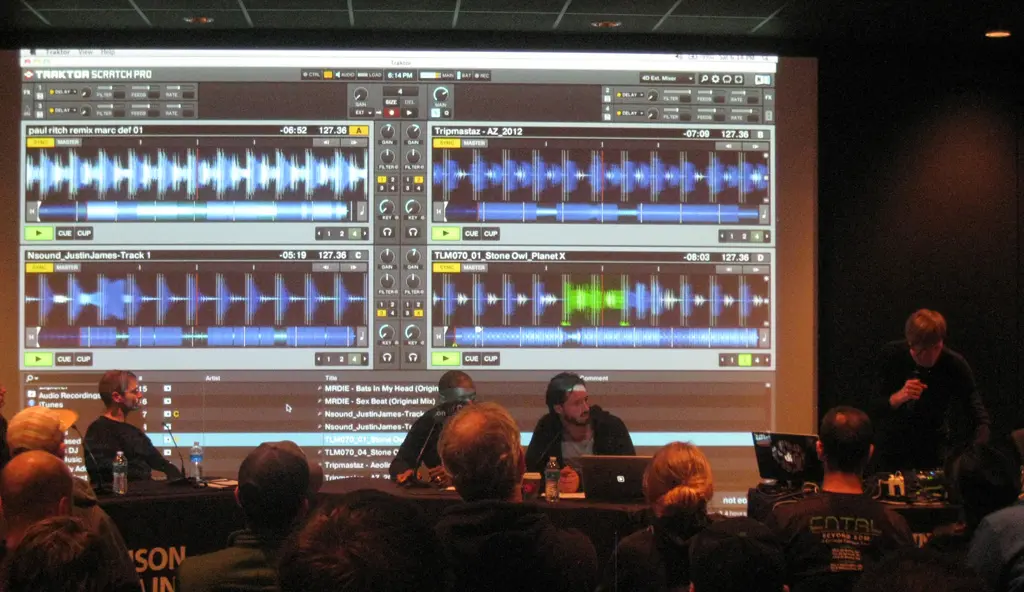
He demonstrated what he meant by that. He went over to his laptop, and ran some sounds with each other using Traktor. He had one track supply the baseline, while he blended the melody of two other tracks on top of that, and a fourth track with some samples. This kind of thing is just not feasible with turntables.
The next train of thought went to the environment. While the music should stand on its own, you're kidding yourself if you don't think the environment doesn't enhance the music. Whether it be the crowd, or visuals, or being animated on stand, the environment is part of the performance. It's part of building that moment for the audience. And for some people, it's the catalyst that launches them into music, and transports them to another place.
The scene is build on the idea of DIY, Do It Yourself. Don't wait for someone to discover you, get out there and do it yourself! Connect with everyone around you, and build your vision. Reach out!
As you build your sound, let people in. Accept criticism. Accept help. And give help back. Be transparent, share idea, and include those interested around you. That's how this scene was originally built in the first place!
Celebrate our diverse opinions, and grow!
Experimentation with your inspiration is how you find yourself.
Saunderson mentioned that one of the first things he ever did was attempt to copy a sound, or copy a feeling. He would hear something, and try to recreate it from scratch in the studio. And out of building toward that sound, the feeling, he found his own sound. It was what he heard, but now it was through his own voice.
While copying things outright is rather opaque, you need to start somewhere. Chasing what you like will give you direction. And through that journey, you will find yourself. You just need to keep at it.
There were a couple more topics, but those were all the notes that I wrote down. Hawtin ended the lecture with a rather inspirational quote, "Dig deeper and continue to explore. This is an incredible time. Don't be disillusioned because popstars are making EDM tunes."
These times are pretty exciting. I've met more people in the last 2 years into this kind of music, that I have ever met before.
I met up with Bryan after the lecture, we had dinner, and then we went to The Majestic, where the panelists performed. Ean Golden started off the evening with an eclectic selection of tracks that went back and forth a little too rapidly for me.
The night began for me when Gaiser took the stage, and performed live. Beautiful, rich, heavy Techno. It was absolutely fantastic. Kevin Saunderson took the stage, and blended some beautiful House tracks together. Followed up by Richie Hawtin. Absolutely incredible night.
The whole package was something truly unique and special: an education and a mind blowing performance.
Also, I broke my goddamn camera :(
